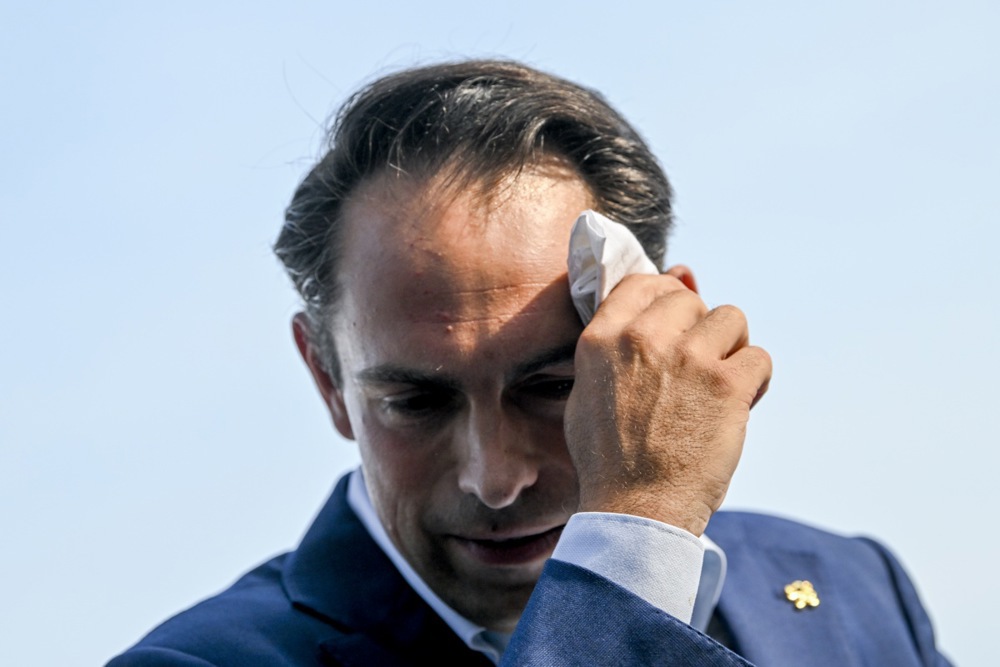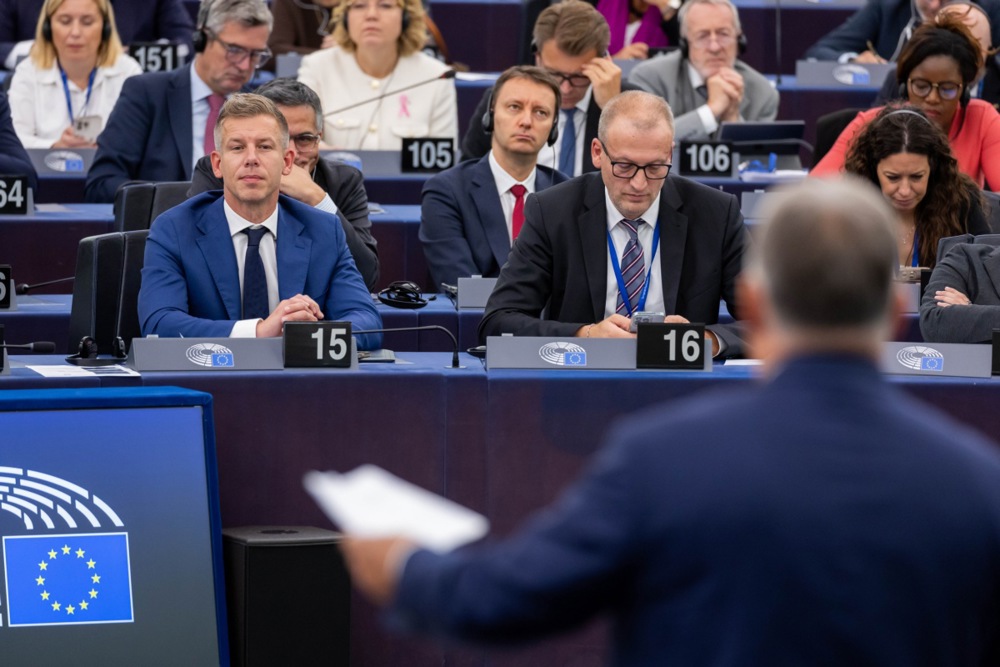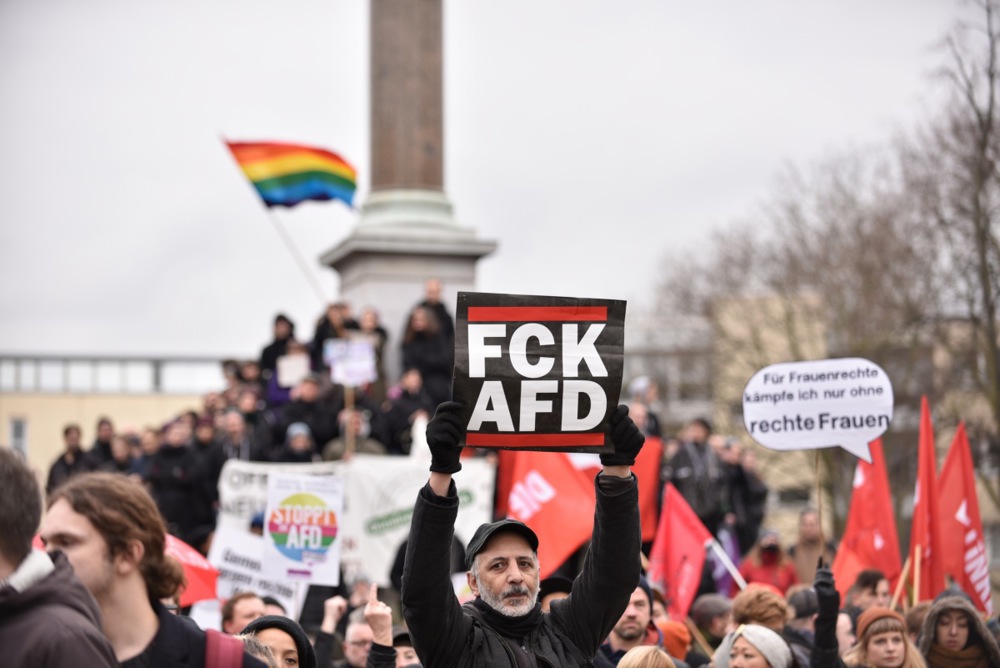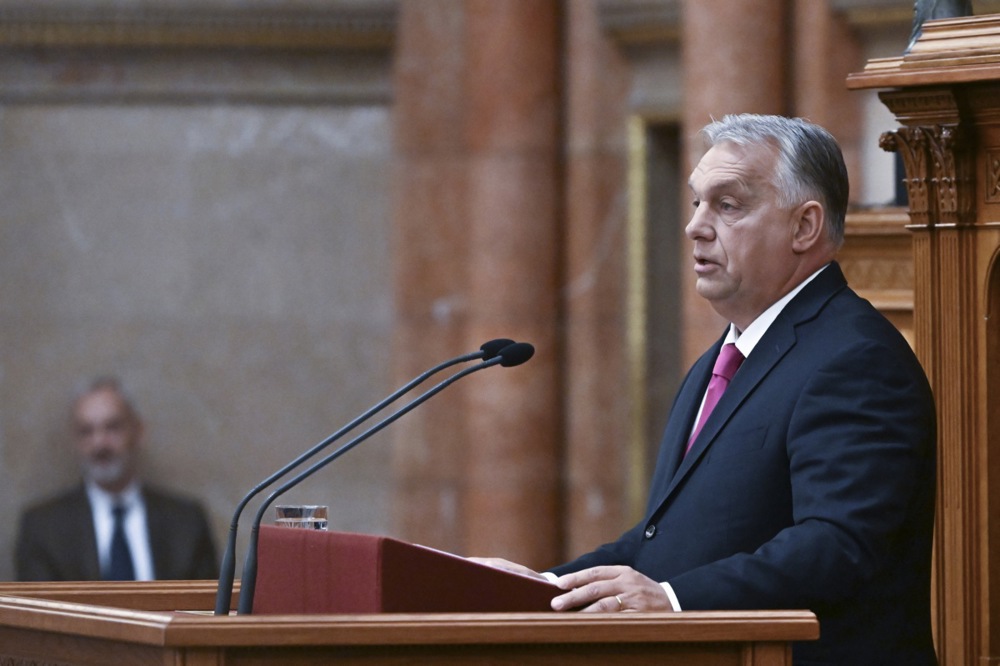In a new report, the Hungarian Nézőpont Institute (Nézőpont Intézet) has taken shots at the European Union, accusing it of violating the rule of law.
According to the report disclosed on November 19 and written by a team of 20 researchers from 10 countries, the EU institutions do not adhere to the principles of the Lisbon Treaty and previous treaties.
Mráz Ágoston, CEO at Nézőpont Institut, told Brussels Signal at the presentation of the report that his think-tank aimed to make the review an annual effort, striving for it to coincide with the rule-of-law releases by the European Commission.
“We think it’s a very unique project, because until the Brussels bureaucracy checked the rule of law in member states, nobody did the job to check the Brussels bureaucracy based on these principles,” Ágoston said.
During the presentation, it was said that EC President Urusla von der Leyen acted as part of the European Council, violating the principle of separation of powers and giving herself an “unmerited” presidential appearance.
Daniel Guéguen, an international academic and lobbyist, criticised the ongoing commissioner hearings, saying they had “no added value” and were proof of “a systemic culture with a lack of analysis, a lack of debate and a lack of alternative”.
He claimed the EU had become a place of caricature, pitching good against evil, and pointed to US Democrat Kamala Harris versus now-President-elect Donald Trump, French President Emmanuel Macron versus National Rally mainstay Marine Le Pen and renewables against fossil fuels.
“The Brussels bubble has become a machine serving political correctness, where expressing a different opinion is becoming dangerous,” Guéguen said.
“In practice, the system destroys checks and balances and therefore strengthens the established power.”
The report, which scrutinised the European Parliament, the European Commission, the EU Court of Justice and the European Council, did not aim to strengthen European oversight competencies, Ágoston said, but aimed to ensure compliance with treaty principles.
Among the Nézőpont Institut’s criticisms was that the European Parliament sought to nominate the commission president. While proponents have said that made the process more democratic, the institute said it went against the treaties.
“Under the treaties, the EP has no right to nominate candidates and so its intention to usurp this power reduces the role of the European Council, the body which brings together the representatives of legitimate national governments. The EP’s intention thus challenges the role of the member states,” the report stated.
It also claimed that the European Parliament excluded right-wing parties and squeezed them out of important positions such as the vice-presidency or quaestor posts in charge of public revenue and expenditure.
“Making it more difficult for parties with significant societal support to participate in political life also breaches the prohibition on discrimination and the principle of equal rights,” the report read.
It also claimed the EP interfered in the national security affairs of member states, referring to the Committee of Inquiry into Pegasus and similar spyware, and the Special Committee on Foreign Interference in all Democratic Processes in the European Union, including Disinformation (INGE), which it said did not have the competency to undertake
The report also claimed it was a breach of the treaties for the parliament to seek scrutiny over national parliaments and said there were limits on the ability to hold democratically the EP accountable.
It further noted that the EP’s anti-corruption rules had shortcomings that violated the principle of prevention of the abuse of power, pointing to recent scandals such as Qatargate and added that very few investigations into code of conduct had been made.
Conflicts of interest, such as EP President Roberta Metsola’s husband being a lobbyist or relatively lax rules on declaring assets were also mentioned.
Regarding the European Commission, the institute claimed that the rule-of-law framework was itself in breach of the treaties, citing the Legal Service of the Council of the European Union on this.
Alongside the “legally questionable ground”, it also claimed that the commission’s rule-of-law framework was used as a political tool, as was the allocation of recovery funds.
The so-called Pfizergate scandal was also cited, with the report highlighting “the risk of corruption in the Commission, but also violation of the right of access to documents – an accusation which is frequently levelled against the Commission”.
Other scandals included a commission director-general who did not declare his ownership of an eco-luxury resort in Bali and a director-general for mobility who did not consider the free airline tickets he received from Qatar Airways to be a conflict of interest to be declared, despite the fact that they occurred while he was negotiating an air transport agreement with Qatar.
Even the European Court of Justice was called out for, the report said, exceeding its powers. The report questioned the court’s integrity and independence, with some judges having been active in politics and even served as party presidents.





